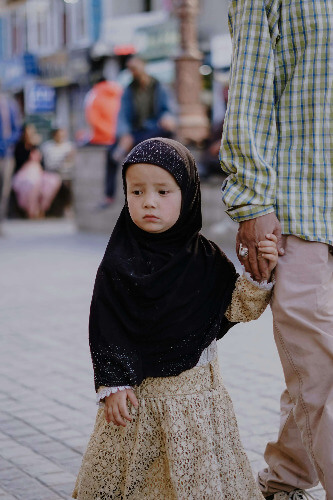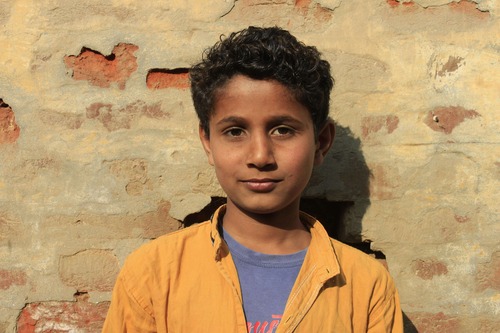What is Authoritarian Parenting Style?
Authoritarian parenting style, a term you are likely familiar with, is commonly characterized by strict rules, high expectations, and offers little or no room for negotiation.
This type of parenting is often similar to a military-style regime, where orders are given and expected to be followed without question.
This parenting approach is marked by specific characteristics that shape the dynamics of parent-child relationships and influence children's development.
Let's take a look at these characteristics and see the impact they have on child and family dynamics.
Characteristics of Authoritarian Parenting
1. Authoritarian Parenting Emphasizes Obedience
Parents who lean towards this style of parenting have a clear set of rules and expectations.
They demand that their children follow these rules to the letter, with little flexibility and room for negotiation.
The word 'no' is regularly heard in their household, often accompanied by stern looks and strict tones.
2. Often Involves the Use of Punishment

If a rule is broken, strict disciplinary measures are taken to ensure that the rules are not broken again.
This could be anything from the loss of privileges and time-out to other more severe forms of punishment.
3. Lack of open communication. In an authoritarian parenting home, the parents are the ultimate authority.
They feel they know what’s best for their children (at least that’s what they believe) and therefore they make decisions and don’t care what their children think.
This may stifle a child’s independence and their ability to express themselves freely.
It's important to remember that every parenting style, including the authoritarian parenting style, has its own set of unique strengths and weaknesses.
Even though it may not be the most nurturing or flexible style of parenting, it can introduce a strong sense of respect and discipline for rules in children.
These characteristics provide a clear understanding of the authoritarian parenting style which explains a no-nonsense approach that can have a significant effect on a child’s development.
Pros & Cons of Authoritarian Parenting
Like any other style of parenting, the authoritarian style comes with its own set of pros and cons. Let’s take a gander, shall we?
Pros of Authoritarian Parenting

1. Clear Rules and Expectations:
When structured boundaries are provided to the child by the parent, the child may find this means to be comforting and reassuring.
2. Discipline:
A strong sense of discipline or high expectations when enforced consistently and firmly, helps children understand the consequences of their actions and they learn self-control.
3. High Achievement:
Children raised in authoritarian homes do well academically, ie. in grades and standardized test scores.
4. Respect for Authority:
Respecting authority figures and rules can be quite beneficial in school, work and out in the public in general.
Now let’s flip the coin and discuss the drawbacks.
Cons of Authoritarian Parenting
1. Limited Independence:
Obedience is prioritized over independence, which can stifle a child’s creativity and decision-making.
This could lead to children having difficulty asserting themselves in various situations, expressing themselves and feeling less free to explore and experiment.
2. Low Self-Esteem:
If constantly criticized or disciplined, children from this type of parenting can grow up with very low self-esteem and self-worth.
They may struggle with feelings of inadequacy or develop a fear of failure.
3. Poor Communication:
Authoritarian parents often give instructions without giving room for any discussion or negotiation from the child. This is also known as the top-down approach to communication.
Therefore, communication between parent and child is difficult, making it impossible for a child to express their thoughts, feelings or concerns.
4. Rebellion and Resentment:
As children get older and are raised with the authoritarian parenting method, they may rebel against the strict rules and the control.
This rebellion can manifest in various ways, such as acting out, engaging in risky behaviour or just plain defiance.

In addition, these children could have feelings of resentment towards their parents which can put a strain on the parent-child relationship in the long run.
As you can see, the balance of these pros and cons can greatly influence the impact of an authoritarian parenting style. It can vary greatly depending on the child, the parent, and they’re unique dynamic.
What may work for one family may not work for others, and that's okay.
So, remember, these are just possibilities, not certainties. That's the beauty of parenting - it's not a one-size-fits-all. It's a journey of learning, adapting, and growing with your child.
How Authoritarian Parenting Can Affect
A Child's Feelings
One who is raised by authoritarian parents can be affected in several ways. Their development, well-being, personality, behavior and relationships.
Here are some of the more significant ways in which they may be affected.

1. Clear Boundaries and High Expectations: Children
raised in strict environments, where the parent focuses more on
obedience and compliance rather than nurturing independence and
self-expression may struggle with feelings of inadequacy and develop low self-esteem.
Authoritarian parenting isn’t all negative though.
If a kid is raised in this type of home environment the structure can provide a child with a sense of security or predictability, so they know what is expected of them in any situation.
These children are prepared to cope with adversity and navigate challenging situations.
Moderate levels of structure can help children develop resilience and problem-solving skills, enabling a child to overcome obstacles in life.
2. Decision Making:
Due to limited independence and freedom the child lacks the opportunity to make their own decisions.
This will then lead to the inability to navigate life's challenges independently as they grow older. They may end up feeling unsure of themselves.
3. Communication Skills:
Social skills are not so great as their parents never allowed them the opportunity to have a voice in discussions or negotiations.
Therefore, they may lack independence and self-expression.
This makes it challenging for them to express their thoughts, feelings or concerns openly and assertively. It’s also hard for them to relate to peers and form meaningful connections.
In addition, their upbringing may lead to difficulties in understanding and respecting boundaries in relationships.
On a brighter note, authoritarian parenting can lead to the compliance of rules and regulations along with a healthy respect for authority.
This can be beneficial in structured environments such as school, work, and public in general.
4. Fear of Failure:
The pressure to meet unrealistic standards leads to anxiety and perfectionism. The fear of failure hinders them from taking risks, trying new things, and exploring their interests freely.
On the plus side, however, their often high grades and test scores indicate great success for them in the future.
In other words, the emphasis on obedience and following rules may just translate into persistence and determination in academic pursuits.

5. Rebellion and Resentment: The kids may rebel by acting out or engaging in risky behavior or having feelings of resentment towards their parents.
It's
important to recognize that the effects of authoritarian parenting can
vary from child to child and depend on various factors such as the
child's temperament, resilience, and external support systems.
While some children may adapt to or even thrive in such environments, others may struggle with the long-term consequences of an authoritarian upbringing.
Providing a balance of structure, support, and warmth is crucial for promoting healthy development and well-being in children.
Summarizing Authoritarian Parenting
Authoritative parenting is a style of parenting that fosters discipline, respect for authority, and a strong work ethic in children.
Being raised by authoritarian parents can have various effects on a child's development and well-being, shaping their personality, behavior, and relationships in significant ways.
It is not about labeling any one style of parenting as 'good' or ‘bad’. It’s about understanding the distinction between each style and making an informed decision as a parent.



















































New! Comments
Have your say about what you just read! Leave me a comment in the box below.